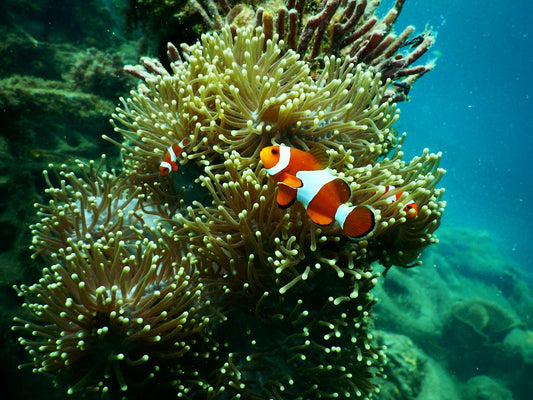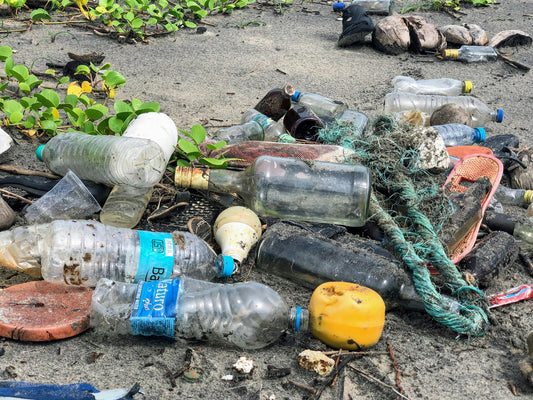Share
There is a thin line between greenwashing and green marketing.
When a company is spending way more effort and funds to portray itself as eco-friendly then it’s spending on authentic sustainability efforts then they are probably under the influence of greenwashing.
Explore five of the most audacious Greenwashing brands with us and change the way you think about them forever.
What is Greenwashing
Greenwashing is a marketing tactic to win the customer's trust by showing that a company cares about the environment.
In today's age of interconnectedness, public opinion may well make or break a business.
There are different ways a company can fake it's commitment to environment, for example by being very vague, not showing proof, or ignoring its bad impact in other areas.
Consumers are now more than ever caring about nature and the environment, and businesses are afraid of the negative reactions that may follow the accusations of negligence.
Through greenwashing, the companies try to shield their reputation and protect their image in the eyes of the consumers, without genuine investments in sustainability.
Greenwashing helps companies to gain a competitive advantage over others by presenting themselves as environmentally responsible, as a result, attracting customers who are conscious about the environment.
Which Companies Are Accused of Greenwashing?
1. McDonald’s

McDonald's, the well known fast food giant, has always been a topic of discussion related to sustainability and corporate responsibility.
In 2019, the company got a lot of media coverage for its plan to reduce the amount of single-use plastics in its UK restaurants, especially the switch from plastic straws to paper ones that would be recyclable.
This move was acclaimed as a relevant step towards the company's environmental protection and reduction of plastic pollution.
Nonetheless, the real story behind the scenes is not what it seems. Even though the paper straws that McDonald's has implemented are advertised as the best option for the environment, it has been discovered that they are not as eco-friendly as claimed.
Contrary to the common perception, these paper straws are not recyclable which is raising serious questions about the real intentions of McDonald's sustainability efforts.
McDonald's has been criticized for its approach of highlighting paper straws as an environmentally friendly option while overlooking their recyclability.
This implies that the fast food giant is valuing appearances rather than actually impacting the environment.
However, McDonald’s continued their campaign of using paper straws.
Other than paper straws, McDonald's has also been critiziced for Greenwashing in its new climate pledge that aims for net zero emissions by 2050. The company focuses on small levers like changing light bubs in restaurants, while completely ignoring the impact of its beef consumption.
2. Volkswagen

The Volkswagen emissions scandal of 2015 was the biggest ever hit to the auto industry as the company was found to have intentionally lied about the environmental performance of its diesel vehicles.
Although the marketing tagline for the automaker says it is environment-friendly, Volkswagen eventually admitted to installing “defeat devices” in millions of cars to bypass emissions tests, leading to the release of pollutants many times above legal limits.
This outrageous behavior resulted in an avalanche of lawsuits, regulatory fines amounting to billions of dollars, and a serious crisis in Volkswagen's image.
The scandal has shown that business ethics and transparency are the most important factors. It also shows how wrong it is to sacrifice ethics for profit.
The reputation damage to Volkswagen was similarly devastating as the brand's image was also ruined and consumer trust eroded.
The scandal occurred as a warning to the companies exaggerating their eco-friendly practices.
3. Coca-Cola

The Coca-Cola Company, a leading name in the global beverage world and one of the largest corporations has been on the hot seat due to its environmental footprint and marketing methods.
While Coca-Cola has set a goal of reducing plastic waste, environmental groups such as Break Free From Plastic have been ranking it as the major plastic polluter around the world.
In spite of public pressure and calls to action, Coca-Cola still defends its position of using plastic bottles, claiming that consumers prefer them.
Furthermore, Coca-Cola has been criticized for its Coca-Cola Life product which it marketed as healthy beverage.
As Coca-Cola Life was promoted as a "low-sugar and green, healthy alternative" to traditional soft drinks, experts revealed that it still contained a high amount of sugar.
The company points out that there are still some arguments around the issue of packaging waste but it is trying to improve this condition.
They are aiming to collect all the bottles by 2030 with an emphasis on recycling plastic into new bottles, which would prevent litter and ocean pollution.
Coca-Cola has, on the other hand, made a move to produce 100% recycled plastic bottles in different markets around the globe.
This move ignores the fact that only 29% of plastic bottles are actually recycled (U.S. numbers) and recyclability itself will not solve the plastic pollution problem.
4. IKEA

IKEA, the Swedish furniture chain that is known for its affordable products, has been put under the spotlight because of its environmental practices.
In 2020, the NGO Earthsight released a research report with shocking revelations about IKEA's environmental claims.
The report pointed out that IKEA was cooperating with a supplier certified by the Forest Stewardship Council (FSC), a certification body that is in charge of confirming wood-sourcing practices.
The supplier surprisingly got charged for the importation of timber from Ukraine, which means that the integrity of IKEA's wood supply chain was compromised.
Furthermore, IKEA’s consumption of wood is substantial – the company needed more than 21 million cubic meters of wood in 2019.
In reaction to the criticism, IKEA has promised to deal with the problems brought up by the Earthlight report and to make its wood-sourcing practices better.
In 2022 it was also revealed that 10 of IKEA's suppliers actually produce their timber with political prisoners, directly benefiting Russia's war on Ukraine. The Company put the blame on its subcontractors and dodged any responsibility.
The organization has promised to be guided by the FSC and other stakeholders concerning the credibility of its timber sources and to minimize its environmental and social footprint.
5. H&M

In 2012 H&M built up a special line of green clothes which were called “Conscious Collection”.
The company said that it used recycled polyester and organic cotton. On the other hand, some point out that this is just a marketing stunt to create the impression that it is an eco-friendly brand.
“Explore our assortment of sustainable fashion items that help you both look and feel good,” reads the mission statement for H&M’s conscious brand.
Despite this, marketing buzzwords such as “green,” “sustainable,” or “environmentally friendly” do not have a common meaning.
The Norwegian Customer Authority severely criticized H&M for false advertising in their new “environmentally friendly” collection.
It was claimed that the information on sustainability was not sufficient, as the Conscious Collection was advertised as a collection with environmental benefits.
H&M pledged to accelerate its efforts and become fully transparent about its environmental impacts by 2023.
True Intentions Are Always Exposed
We can see that some of the big companies around the world have been under the shadow of greenwashing.
However, it’s evident that no matter how hard they try to hide their true intentions, they will be exposed after some time.
We hope you enjoyed this article. If you want to read more like this, make sure to check out our Blog and follow us on Instagram. If you are interested in truly sustainable products, check out our Shop.
Did you know these brands are notorious for greenwashing? Let us know in the comments.








